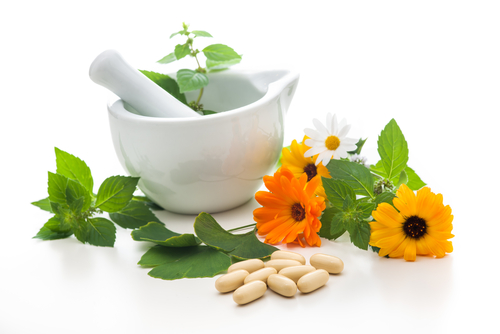Over the last few decades the Western world has finally woken up to maca’s widespread health-giving properties, which has led to the radish-like root plant’s establishment as a popular treatment for increasing energy and stamina and, especially, conditions related to women’s menopausal and menstrual health and sexual health in both sexes.
Maca has been cultivated in Peru for at least 3,000 years and so has a long history of appreciation for its medicinal qualities. Rich in the dietary minerals calcium and potassium (and including a low content of sodium), it also contains iron, iodine, copper, manganese and zinc, in addition to a number of fatty acids (such as linolenic, palmitic and oleic acids) and amino acids.
Relief for menopausal and menstrual symptoms
One of maca’s key benefits concerning menopausal and menstrual-related problems is helping with hormonal imbalance. In a 1998 article on the subject1, Peruvian-based cardiologist Hugo Malaspina MD stated that maca’s efficacy in readdressing hormonal balance is down to the fact that, as an alternative to hormone replacement therapy (HRT), maca doesn’t introduce new hormones from outside the body, but instead encourages the ovaries and other glands to produce the much needed hormones oestrogen and progesterone themselves.
“Maca regulates the organs of internal secretion, such as the pituitary, the adrenal glands, the pancreas, etc.” he said. “For this reason, I encourage women to start with maca before menopause. It seems to help the endocrine system to stay in balance”1.
Gabriel Cousense, MD, an internal medicine specialist in Arizona in the United States, has also claimed that whenever possible he preferred to use maca therapy over HRT because, in going about its work, as the latter reduces glands’ ability to produce hormones it effectively ages the body. Moreover, he has claimed that those menopausal patients to whom he prescribed the root plant as a supplement reported maca supplement benefits – a reduction if not an elimination of symptoms such as hot flushes and depression, as well as reporting less fatigue, greater energy and reduced susceptibility to stress1.
Improved male and female libido
As maca is very effective at normalising steroid hormones like testosterone, progesterone and oestrogen – and thus has the ability to forestall the hormonal changes of aging – for men this means it can restore a more active libido, leading to healthy and functional sexual activity. On this subject, US-based Garry F. Gordon, MD, then President of the International College of Advanced Longevity Medicine, suggested that as “society faces a huge problem of dropping sperm counts and sex hormone difficulties …maca furnishes a nontoxic solution [offering] men and women the chance for hormonal rejuvenation”1.
Other benefits
However, not all of maca’s benefits are hormonal-related. For instance, Dr Aguila Calderon, former Chief of the Department of Biological Sciences and Dean of the Faculty of Human Medicine at Lima’s National University of Federico Villarreal, has attested that it can be prescribed for conditions as removed from those mentioned above as osteoporosis and the treating of bone fractures in very elderly people. She attributes this to the fact that maca contains a good deal of easily absorb able calcium, as well magnesium and silica, aiding in the de calcification of bones in children and adults 1.
With its sundry benefits for a variety of different conditions then (it may also help boost people’s immune systems, improve mood and memory and support the adrenal glands), maca is widely available as a dietary supplement and can be purchased via The Finchley Clinic as 180 capsules and 90 capsules (both 500mg) and in powder form (100g).

